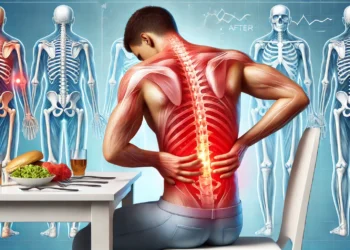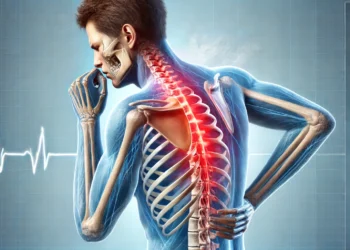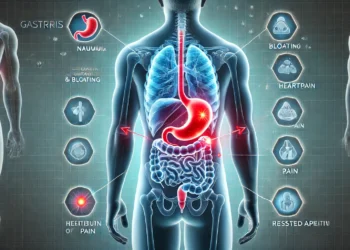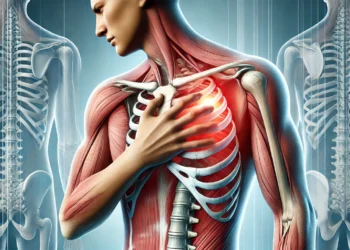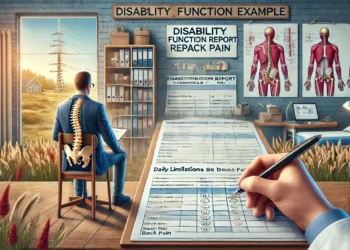Pneumonia is a serious respiratory infection that affects the lungs, often causing symptoms such as fever, cough, difficulty breathing, and fatigue. While these symptoms are commonly associated with pneumonia, many people also wonder whether pneumonia can lead to back pain. In this article, we will explore the connection between pneumonia and back pain, and how understanding this relationship can help in managing symptoms and seeking proper treatment.
Understanding Pneumonia
Pneumonia occurs when the lungs become inflamed due to infection, usually caused by bacteria, viruses, or fungi. It can affect one or both lungs, leading to symptoms like a persistent cough, chest pain, difficulty breathing, chills, and fatigue. Some people may experience additional symptoms such as headaches, nausea, or muscle aches. While back pain isn’t typically the first symptom people associate with pneumonia, it can occur in certain cases, especially when the infection causes complications.
Read Also: Will Xanax Help Back Pain? A Comprehensive Guide – Can Xanax Alleviate Chronic Back Discomfort!
How Pneumonia Can Lead to Back Pain
Back pain isn’t a primary symptom of pneumonia, but it can be related to the condition in several ways:
Coughing Strain:
One of the most common symptoms of pneumonia is a persistent cough, which can be severe and long-lasting. Continuous coughing places a lot of strain on the muscles of the back, especially the lower back. Over time, this strain can lead to muscle soreness, discomfort, and even back pain.
Chest Pain Radiating to the Back:
Pneumonia can cause inflammation in the chest, leading to chest pain. Sometimes, this pain can radiate to the back, particularly if the infection affects the pleura—the lining around the lungs. This type of referred pain can make you feel like you have back pain when, in fact, the source is in the chest or lungs.
Infection Spreading to the Spine:
In rare cases, pneumonia can lead to complications where the infection spreads beyond the lungs. If the infection reaches the spinal area, it can cause inflammation of the vertebrae or discs, leading to back pain. This is a more serious complication and requires immediate medical attention.
Muscle Aches and Body Pain:
As pneumonia progresses, many people experience generalized muscle aches and fatigue. This can contribute to discomfort and soreness in various parts of the body, including the back. The body’s response to infection can sometimes cause widespread pain, and the back is often affected.
Posture Changes Due to Breathing Difficulty:
Pneumonia can make it difficult to breathe deeply, leading people to alter their posture to accommodate shortness of breath. These changes in posture can strain muscles in the back and lead to discomfort or pain over time.
When to Seek Medical Attention for Back Pain and Pneumonia
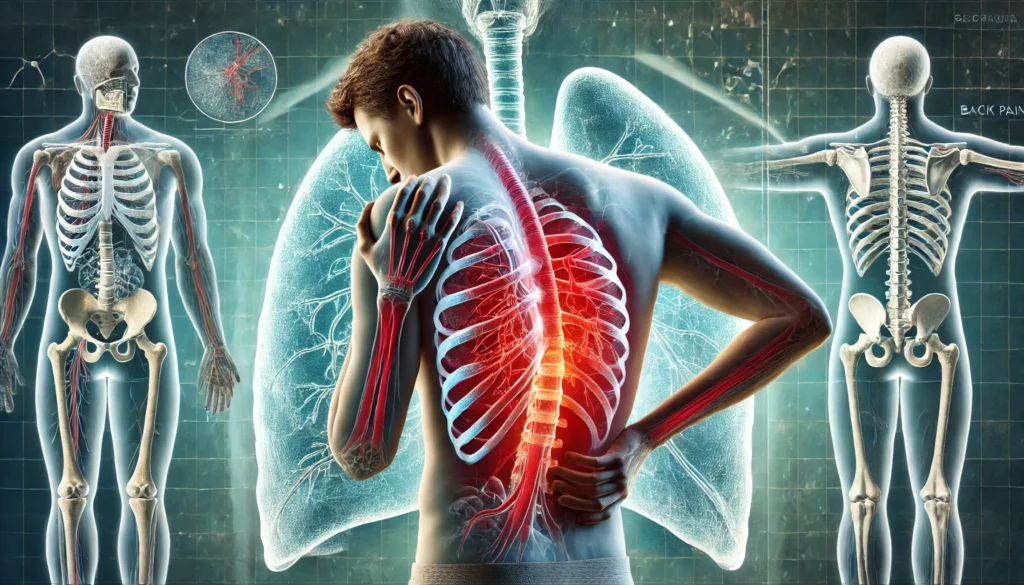
If you are experiencing back pain alongside pneumonia symptoms like fever, cough, and difficulty breathing, it’s essential to seek medical attention. While mild back pain can be a result of muscle strain from coughing, severe or persistent back pain could indicate complications or a more serious underlying condition.
You should seek immediate medical care if:
- The back pain is severe or worsening
- You experience sharp chest pain or shortness of breath
- There are signs of infection spreading to other parts of the body, such as fever, chills, or confusion
- You have a history of chronic health conditions like asthma, COPD, or heart disease, which can make pneumonia more severe
Treatment for Back Pain Related to Pneumonia
If your back pain is due to pneumonia, the best course of action is to treat the underlying infection. Antibiotics, antivirals, or antifungals may be prescribed depending on the cause of the pneumonia. Rest and hydration are essential for recovery, and over-the-counter pain relievers like ibuprofen or acetaminophen can help manage mild back pain. If the pain is related to muscle strain from coughing, gentle stretching and exercises may also help alleviate discomfort.
In cases where pneumonia causes complications like an infection spreading to the spine, more aggressive treatment, such as hospitalization or surgery, may be required. It’s important to follow your healthcare provider’s instructions for treatment to avoid any further complications.
Preventing Pneumonia and Back Pain
While not all cases of pneumonia can be prevented, there are steps you can take to reduce your risk of developing the condition and minimize the likelihood of complications like back pain:
- Get Vaccinated: Vaccines for pneumonia, like the pneumococcal vaccine, can reduce the risk of certain types of pneumonia, especially for those at higher risk, such as older adults and people with weakened immune systems.
- Practice Good Hygiene: Wash your hands regularly, avoid close contact with sick individuals, and avoid smoking to protect your lungs and respiratory health.
- Strengthen Your Immune System: A healthy diet, regular exercise, and adequate sleep can help keep your immune system strong and better equipped to fight infections.
- Manage Chronic Conditions: Conditions like asthma or COPD can increase the risk of pneumonia. Managing these conditions with the help of a healthcare provider can lower your chances of developing respiratory infections.
FAQs:
1 Can pneumonia cause back pain?
Yes, pneumonia can lead to back pain due to coughing strain, chest pain radiating to the back, or muscle aches.
2 Why does coughing with pneumonia cause back pain?
Persistent coughing strains the muscles in the back, leading to soreness and discomfort.
3 Is back pain a common symptom of pneumonia?
No, back pain is not a primary symptom, but it can occur as a secondary effect of coughing or inflammation.
4 What complications of pneumonia can cause back pain?
Infections spreading to the spine or severe muscle aches related to the infection can cause back pain.
5 When should I seek medical attention for back pain with pneumonia?
Seek medical attention if the back pain is severe, persistent, or accompanied by chest pain or difficulty breathing.
Conclusion:
While back pain is not a direct symptom of pneumonia, it can occur as a result of coughing, chest pain, muscle aches, or posture changes due to difficulty breathing. Understanding the connection between pneumonia and back pain can help you recognize when the pain is a sign of a more serious issue or simply a result of muscle strain. Always consult a healthcare provider if you’re concerned about symptoms or if your back pain persists, especially if you’re also experiencing signs of pneumonia. Proper treatment of pneumonia, combined with self-care and preventive measures, can help you recover fully and avoid complications like back pain.


